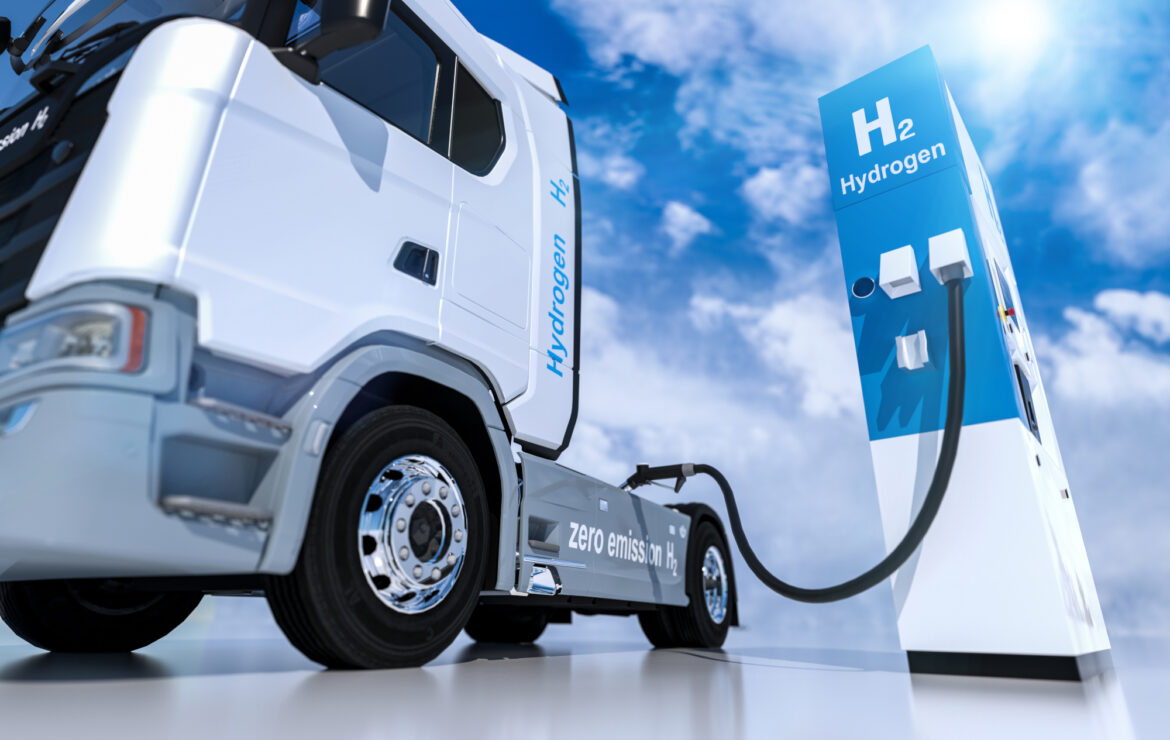
Hydrogen as an alternative fuel source
Sustainability is a popular topic amongst engineering professionals in the vehicular industry. Dating back to 1889, when Adreas Flocken showcased the Flocken Elektrowagen (first battery electric car), the idea of sustainable vehicles was conceived early in automotive history and has continued through to the present time, influencing commercial and industrial vehicle development. In the early 2000s, commercial and industrial vehicle Original Equipment Manufacturers (OEMs) began introducing battery-electric vehicles to the market. After some testing, these OEMs started understanding the range limitations of battery electric vehicle technology compared to internal combustion engines (ICE). Vehicle developers soon learned that if they wanted to influence ICE vehicle owners to purchase sustainable vehicles, the new sustainable vehicles would have to meet the current performance standards of an ICE vehicle. Solving this problem has caused research and development professionals to seek other fuel alternatives. One of the popular fuel alternatives up for consideration is hydrogen.
Currently, there are two popular hydrogen technologies that commercial vehicle OEMs have explored. Those technologies are hydrogen combustion engines and hydrogen fuel cell vehicles. In comparison to battery electric vehicles, vehicle designers have discovered hydrogen technology’s ability to have extended range. Both hydrogen technologies have advantages and disadvantages but seem to have a more extended range than battery electric vehicles.
Hydrogen combustion engines have gained much attention over recent years. Hydrogen combustion engines burn hydrogen directly in the combustion process. The combustion process is a chemical reaction between a fuel and an oxidizing agent – typically oxygen from the air, resulting in the release of energy in the form of heat and light. In hydrogen combustion engines, the hydrogen gas reacts to the oxygen (O2) in the air – which serves as an oxidizer fueled by heat or an ignition source, which creates a chemical reaction. These reactions release significant heat that powers the hydrogen combustion engine. The difference between a hydrogen combustion engine and an ICE vehicle is that the ICE vehicle exhausts greenhouse gases. In contrast, the hydrogen combustion vehicle releases water vapor (H2O). Water vapor is more sustainable compared to carbon emissions. One benefit vehicle developers find with hydrogen combustion engines, in addition to the release of cleaner exhaust, is their ability to use an existing internal combustion engine infrastructure with modifications. However, due to the chemical nature of the hydrogen combustion process, engineers have found it technically challenging to design a combustion engine that handles hydrogen at high-speed combustion and low ignition energy. Even though hydrogen combustion engines seem to be an excellent solution for heavy-duty truck and bus applications, designers must continue their research to resolve the technical challenges of designing a robust hydrogen combustion engine.
The other hydrogen alternative is hydrogen fuel cell technology, which is also a great solution for heavy-duty trucks and buses. Hydrogen fuel cell technology is entirely different than hydrogen combustion engines. Hydrogen fuel cells convert hydrogen gas into electricity through an electrochemical reaction with oxygen. As a result, it emits heat and water as a byproduct. Despite the extended range and clean emissions, researchers and developers realized this alternative fuel technology will cost more than traditional ICE vehicles, making it challenging for buyers to spend more on a hydrogen vehicle. Despite this challenge, OEMs have received support from governments worldwide for developing and adopting hydrogen fuel cell electric vehicles as an alternative fuel source.
Despite all the features and benefits of hydrogen technology, vetting is still underway. Also, both technologies have limited infrastructure for producing, transporting, and refueling hydrogen. Some researchers have hypothesized that if the electricity to produce the hydrogen comes from renewable sources, hydrogen can be considered a cleaner fuel alternative due to the large amount of electricity required to support a hydrogen infrastructure. Pulling the necessary amount of electricity from the grid to support hydrogen could cause power outages and burn more fossil fuels, which would be counterproductive to the sustainable goals hydrogen is capable of. The technology is still under refinement to ensure hydrogen vehicles are a viable fuel alternative to diesel. However, they must overcome the infrastructure challenges to ensure it is ready for the market. To advance, it will take collaboration between heavy-duty vehicle OEMs, utilities, and governments to overcome these infrastructure challenges. It’s clear hydrogen has a promising future as an alternative zero-emissions fuel. However, more research needs to be completed to ensure hydrogen-powered vehicles meet customer performance and infrastructure requirements.





